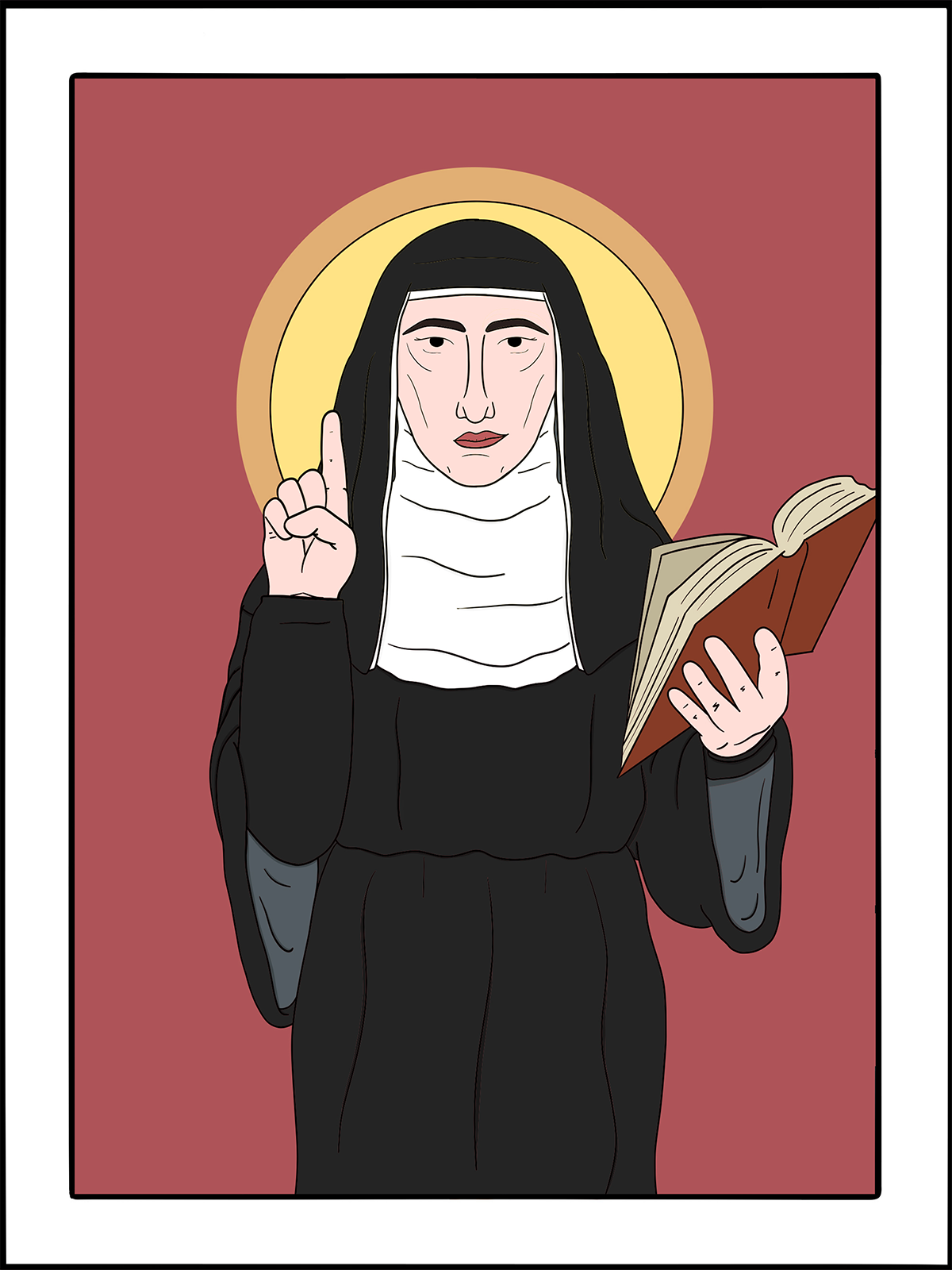
May 28
Mechthild of Magdeburg
Mystic, 1282
art by Rev. Kirsten Kohr of Geneva, Ohio Draw the souls of your people into your love, O God, that like your servant Mechthild, we may yearn to be fully yours, for you know us better than we can know ourselves; through Jesus Christ our Lord, who lives and reigns with you and the Holy Spirit, one God now and for ever. Amen.
Mechthild of Magdeburg was one of the most original medieval mystics and the first to write in the German language. She was a Beguine, a member of a group of women who lived in a quasi-monastic community but did not take formal vows. Instead, they pledged to be bound by the traditional vows of poverty, chastity, and obedience only for as long as they lived in the community. Typically, Beguines lived in a communal house and supported themselves through their own work, such as nursing, weaving, embroidery, burial of the dead, and housework.
Mechthild is known to us primarily through her work The Flowing Light of the Godhead, which consists of seven books written over a period of thirty years. It is clear from the work that she was familiar with courtly poetry and vernacular literature, but she does not seem to have had any formal training in theology or in Latin.
Her work alternates between passionate descriptions of her love for God and scathing denunciations of many clergy and of the laxity that she perceived in the official church of her time. Because of these criticisms, her work was at times controversial. Shortly after her death, a Latin translation of her work was produced by Dominican priests, who faithfully conveyed the majority of the text, but significantly toned down both her erotic imagery and her critiques of the vices of the clergy.
Mechthild spent the last years of her life at a Cistercian convent in Helfta, whose nuns were famous for their education and scholarship. It is clear that she felt somewhat uncomfortable in this very different environment, but the sisters seem to have warmly welcomed her and protected her from anyone who criticized her work. During the last years of her life, she became blind, and so the last chapters of her book were dictated to one of the sisters of the convent.
In one famous passage of her book, she writes:
“A fish cannot drown in water, A bird does not fall in air.
In the fire of creation,
God doesn’t vanish:
The fire brightens.
Each creature God made
must live in its own true nature;
How could I resist my nature,
That lives for oneness with God?”
Excerpted directly from “Lesser Feasts and Fasts 2022,” p. 248-249.

